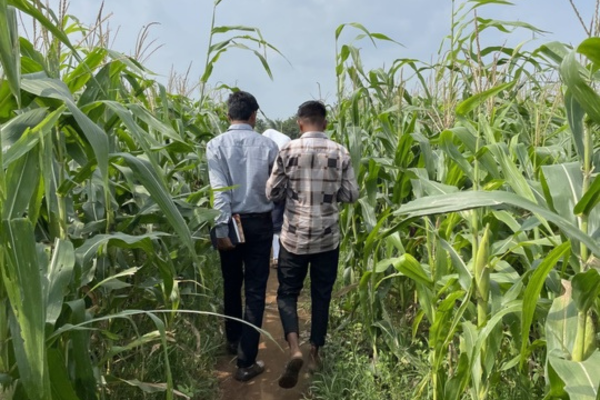Our Chief Program Officer, Hina Musa, and Impact Manager, Audria Choudhury recently attended the Biennial International Conference on Alternative Care for Children Conference (BICON) in Nepal before visiting Miracle Foundation’s India Office. The conference is focused on children’s welfare with a strong focus on transitioning to family-based care. Audria said this year’s BICON conference was special because it was entirely coordinated by those who have lived through the orphanage or foster care system.
“They need to be the ones who are leading this conversation,” Audria said. “It was really a chance for young people to showcase and voice their thoughts and opinions and ideas.” Audria shared that these leaders were seeking support with financial literacy, access to higher education, career services, and internship support. “They were able to very transparently say what they want to see the future of this experience to look like, what their needs are, and what they like and don’t like,” Hina added. “They were really able to guide the conversation.”
After the conference, Audria and Hina visited Miracle’s India Headquarters. Audria and Hina both had the opportunity to see the Thrive Scale™ Methodology in action. “Since I am new to the Miracle team, it was my first time seeing all of the work that we’re doing on the ground. It was a very impactful experience because I was able to see everything that we talked about and every aspiration that we worked towards actually seeing it come to fruition,” Hina said.
The Thrive Scale is an assessment tool that focuses on five well-being domains — Family and Social Relationships, Household Economy, Living Conditions, Education, and Health and Mental Health. It is used during a child’s transition from institutionalized care to family-based care. “The methodology is really about putting a proper case management process in place and being more mindful about gathering information, following up with families more consistently, and connecting to community and government resources,” Audria said.
The Thrive Scale can be applied as a measure to prevent separation, as a tool to determine when to reintegrate a child into family-based care, and as a post-reintegration follow-up. Hina was able to see the Thrive Scale model applied to both a preventive case and a reintegration case during her visit.“ I met this woman whose husband had died, and she thought her kids were going to get separated from her,” Hina shared. “Her social worker used the Thrive Scale and did nine assessments over a year and a half and was able to completely change the living condition she was in.”
Hina also witnessed a case of a child whose parents sent him to institutionalized care because they thought it would provide him with the opportunity for a better education and support.
“After learning the ins and outs of a CCI, they decided to pull him from the CCI and place him with his sister, who’s married and had a stable household and lived close to a school so that he would still have access to a school, but be with the family,” Hina shared. “It was also nice to be able to see that situation because that was a reunification case.”
Meanwhile, Audria had the opportunity to accompany a social worker, Lever Singh, who served the families of the village he lived in. “He had really good rapport with the families he works with,” Audria shared.” That’s the model we’re really going for right now.” Lever Singh found the Thrive Scale methodology useful since it provided a standardized set of things to look out for each visit, making it easier to track progress over time and generate an action plan.
This was Audria’s first visit to the India office since COVID, and with this visit, she was able to meet with more government bodies. “Part of our work is really just working for systemic change,” Audria shared. “We do grassroots work with the orphanage leaders and community members, which includes working with partners to provide consistent support and follow up with families to ensure they’re able to access appropriate resources and have what they need to thrive. We also work with the government because we know that everything trickles down from them. They are at the foundation of a lot of these policies, processes, and decisions that come to families staying together or not.”

